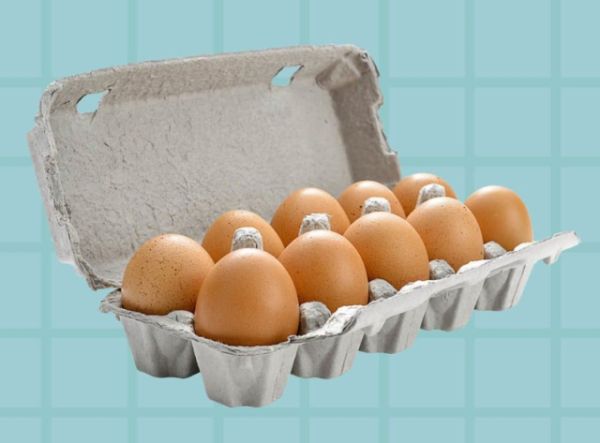
Have you ever been unsure whether the eggs in your fridge are still good to eat? It can be challenging to determine their freshness because the shells hide the condition of the white and yolk. But there’s no need to worry! In this article, we will go over some simple ways to determine if an egg is fresh or if it has expired. These tips will help you avoid wasting food and ensure that the eggs you eat are safe and delicious.
1. Check the Expiration Date
When you buy eggs from the supermarket, they come with a recommended use-by date on the packaging. In France, the law prohibits the sale of eggs seven days before the minimum durability date (Ddm) indicated on the packaging. But if you get eggs directly from a farm, they may not have an expiration date. In that case, remember that the use-by date (Dlc) is usually 28 days after the day the eggs were laid. However, if the shells are intact and not cracked, you can safely store the eggs in the refrigerator for up to 58 days after they were laid.
2. Trust Your Nose
Just like other fresh products, eggs can develop an unpleasant odor once they have passed their expiration date. If you notice a strange smell coming from an egg, it’s a clear sign that it has gone bad and should not be consumed. Expired eggs can also lose their vitamins and have an altered taste. On the other hand, if the egg smells normal, you can use it quickly to make a delicious omelette.
3. Examine the Shell
Your eyes can be helpful in determining if an egg is expired or still good to eat. Check if the shell is powdery, viscous, or cracked. Any unusual appearance may indicate the presence of mold or bacteria that can cause food poisoning. Also, pay attention to any suspicious discoloration, such as blue, pink, black, or green spots in the egg white or yolk. Discoloration can be a sign of bacterial growth.
4. Conduct the Water Test
One easy way to check the freshness of an egg is to use the water test. Fill a saucepan or salad bowl with water and gently place the egg in it. If the egg sinks to the bottom and lays flat, it is still fresh and good for consumption. If it stands upright on the bottom, it is best to eat it soon. And if it floats to the surface, it is expired and should be discarded. As eggs age, air pockets form inside, causing them to float.
5. Try the Mirage Technique
Although primarily used in the industry, you can also assess egg quality at home through candling. Hold a light source like a candle or flashlight against the end of an egg and tilt it from left to right. This technique allows you to see the size of the air bubble inside the egg. The larger the air pocket, the older the egg is. This method is useful for determining if an egg is very old or nearing its usage limit.
Remember, consuming expired or spoiled eggs can pose health risks. It’s essential to be cautious and follow these tips to ensure the eggs you eat are still fresh and safe. When it comes to other foods, always check the expiration dates and trust your senses. Some foods can be consumed after the expiration date, but others should be thrown away to avoid potential illnesses. By being mindful of food safety, you can enjoy your meals while reducing food waste.



